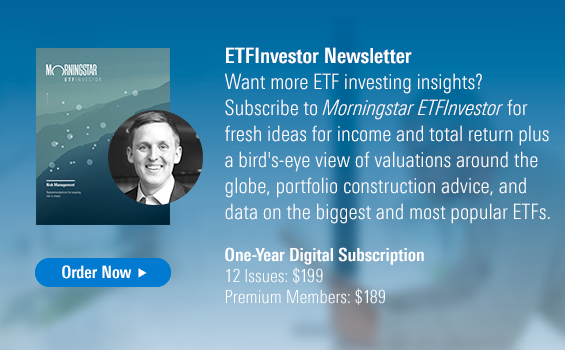Not All Smart-Beta Funds Are Smart
To separate the wheat from the chaff, look for funds with low fees, transparency, and efficient construction.
A version of this article appeared in Investment News on Nov. 30, 2017.
"Smart-beta" strategies are index funds that attempt to beat the market or achieve specific objectives, like higher income or lower risk, through security selection, alternative weighting, or some combination of the two.
They express active bets, which inevitably will go through stretches of strong and weak performance. It's important to understand the strategy, evaluate it as you would an active manager, and have the patience to stick with it.
While some smart-beta funds have merit, not all do. Morningstar prefers to call smart beta "strategic beta" to remove the positive connotation.
Strategic-beta funds come in many flavors. Most target stocks with a common set of characteristics, or factors, that have historically been associated with market-beating performance. These include low valuations, strong recent performance (momentum), low volatility, high profitability, and small market capitalizations. But that does not guarantee that all these funds will be successful. It's important to be an informed and discerning consumer.
Even funds that appear to target the same factor can look and perform quite differently from one another, depending on how they measure the factor, how aggressively they pursue it, and how they weight their holdings. For example,
Desirable Characteristics The best strategic-beta funds are cheap, transparent, effectively capture the factor(s) of interest, and take steps to mitigate unnecessary turnover and risk, such as large sector or country concentration.
Strategic-beta funds tend to charge more than traditional index funds, but investors shouldn't pay a high premium for them. These are rules-based strategies that do not require any more human intervention than an S&P 500 tracker. Fortunately, many strategic-beta funds charge less than 0.30%, which is competitive with the lowest-cost index funds.
Transparent index-construction methodology can inform whether a fund will likely provide efficient exposure to the factor(s) it targets, as can its portfolio composition and live performance record. For example,
It is important to be mindful of the unintended bets that a strategic-beta fund might introduce. QUAL’s sector-relative selection approach helps mitigate sector tilts. In contrast,
For instance,
Diversification No single factor will work well in every market environment. But individual factor strategies can complement one another. For example, value tends to work well when momentum doesn't, and vice versa. A diversified portfolio of factor strategies can reduce the risk of experiencing extended periods of underperformance. This can be done either by investing in a few single-factor strategies or by selecting an integrated multifactor fund. While both approaches dilute the portfolio's exposure to each factor, the latter can offer slightly stronger exposure to the factors of interest. This type of fund doesn't necessarily own the stocks that look the best on any single metric but rather targets those with the best overall combination of characteristics. This can pack a stronger punch than the multifund approach because there is often little overlap among the holdings of funds that focus on different individual factors, which can weaken the style tilts at the portfolio level.
Among the multifactor strategies available, Bronze-rated
Not all strategic-beta funds are worth investing in, but the ones that are offer transparency, sensible portfolio construction, and reasonable fees. Even the best strategies won't work all the time. Diversifying across factor strategies can help reduce risk and make it easier to stick with them over the long term, which should improve the odds of success.

Disclosure: Morningstar, Inc. licenses indexes to financial institutions as the tracking indexes for investable products, such as exchange-traded funds, sponsored by the financial institution. The license fee for such use is paid by the sponsoring financial institution based mainly on the total assets of the investable product. Please click here for a list of investable products that track or have tracked a Morningstar index. Neither Morningstar, Inc. nor its investment management division markets, sells, or makes any representations regarding the advisability of investing in any investable product that tracks a Morningstar index.

/s3.amazonaws.com/arc-authors/morningstar/56fe790f-bc99-4dfe-ac84-e187d7f817af.jpg)
/cloudfront-us-east-1.images.arcpublishing.com/morningstar/T2LGZCEHBZBJJPPKHO7Y4EEKSM.png)
/d10o6nnig0wrdw.cloudfront.net/04-18-2024/t_34ccafe52c7c46979f1073e515ef92d4_name_file_960x540_1600_v4_.jpg)
/d10o6nnig0wrdw.cloudfront.net/04-09-2024/t_e87d9a06e6904d6f97765a0784117913_name_file_960x540_1600_v4_.jpg)
:quality(80)/s3.amazonaws.com/arc-authors/morningstar/56fe790f-bc99-4dfe-ac84-e187d7f817af.jpg)